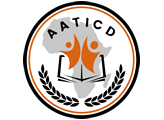Why Attend
Digitization is a major challenge for all organizations. As digital content continues to grow at a fast rate, policies, processes, and systems are required to manage demand to help drive business operations and become more effective. This process is also known as digital transformation, and professionals and organizations are increasingly required to adopt global standards and international best practices to improve how digital content is captured, managed and controlled.
Digitization and File Management is the specification of establishing digital controls and accountability frameworks to encourage desirable behavior in the valuation, creation, storage, use, archiving and deletion of digital information. The processes involved include scanning, workflow, Optical Character Recognition (OCR); processes, roles, standards, and metrics must be implemented that ensure the effective and efficient use of information in enabling an organization to achieve its goals.
This course provides participants with in-depth knowledge in Digitization as well as with practical skills to help manage, plan, analyze, deliver and support an ever-growing volume of data and information within their organizations. The course covers international best practices, industry regulations, legal requirements, information compliance, auditing and security standards; including National Archives Digitization and Guidelines, Scanning, Archiving and Digital Preservation and ISO 13008 Digital Records Conversion and Migration.
As part of the course, participants carry out group and individual exercises and learn from industry best practice case studies. The best practice can be applied to improve data management within their own organizations.
Course Methodology
The material used in the training course will be based on exercises as well as regional and international case studies. Participants will frequently work in pairs with one another as well as in larger teams.
Course Objectives
By the end of the course, participants will be able to:
- Understand how data and information can be digitized and managed more efficiently and effectively within organizations
- Develop action plans for scanning, workflow, and integration of digital information to support compliance, audits, legislation and regulations
- Establish and implement a Data Digitization project, including systems, roles, and responsibilities
- Manage data against international best practices, including ISO 13008 Digital Records Conversion and Migration
- Develop digitization policies and working procedures
- Formulate and manage data in accordance with ISO 27001 Information Security standards
Target Audience
This course is suitable for IT professionals, document controllers, auditors, site administrators, general management and anyone tasked with managing and protecting data and information. This also includes professionals already familiar and involved with data management and seeking to build on their fundamental principles of managing data, information, and records.
Target Competencies
- Records Management
- Data Compliance
- Developing Policies and Procedures
- Archiving
- Database Systems
Location:
South AfricaTraining Dates:
Each course starts every Monday of each week. Please book your training on a date that is a Monday.Course Duration:
Unit Standard:
NQF Level:
Number of Credits:
Course Fees
Note: Please fill in the online application form on the left or bottom if this page to receive a quotation with detailed pricing from AATICD.How to Apply:
To Apply Simply Fill in the Online Enquiries / Applications form on the Right Sidebar or Bottom of this website https://www.aaticd.co.zaNB:
When filling the online application form; please take note of your desired Training Month, Duration in Weeks and Training Session. This will give us the exact dates you will be attending your classes.Also note that Tuition Fees must be paid upfront on or before training start date. This is to ensure that all resources are made availabe for you before you start. You will not be allowed into training if fees are not paid and verified.
Also note that Tuition Fees Cancellations must be made 14 business working days before the starting date of training. This will allow us to do a 50% refund of the total amount paid. If cancellations are made thereafter note that no refund will be made to delegates.
Tuition Fees include teas and lunch as well as either a laptop or tablet which a delegate will take home free of charge.
Tuition Fee DOES NOT include Accommodation, Dinners and other Extra Curricular Activities or Incidentals. Delegates are expected to fund this on their own. AATICD will not be held accountable for any incidents to delegates.
In-House Trainings are also available for 3 or more delegates for any duration. Please consult with our Administration for such In-House training bookings.
Course Outline
- Introduction to Digitization and Standards
- Introduction to digitization and file management
- Managing structured and unstructured data
- Scanning and capture
- Workflow
- Metadata, indexing, and classification
- Enterprise search and archiving
- Compliance, Regulations, and Digitization ISO 13008
- ISO 13008 digital records conversion and migration
- Archiving and preservation
- Data protection and data privacy
- Document and records management compliance
- ISO 27001 information security and cybersecurity
- Implementation and Project Management
- Developing a target operating model
- Roles, responsibilities, and reporting
- Program planning
- Quality management planning
- Risk and issue management
- Data Digitization IT Solutions
- Scanning and Optical Character Recognition (OCR)
- Indexing and Metadata
- Workflow and business process automation
- Enterprise content management systems
- Document and records management
- Archiving and preservation
- Developing Policy, Procedures and Action Plans
- Digitization management policies
- Develop data lifecycle management procedures and guidelines
- Create a programme and project implementation action plan
- Case studies




